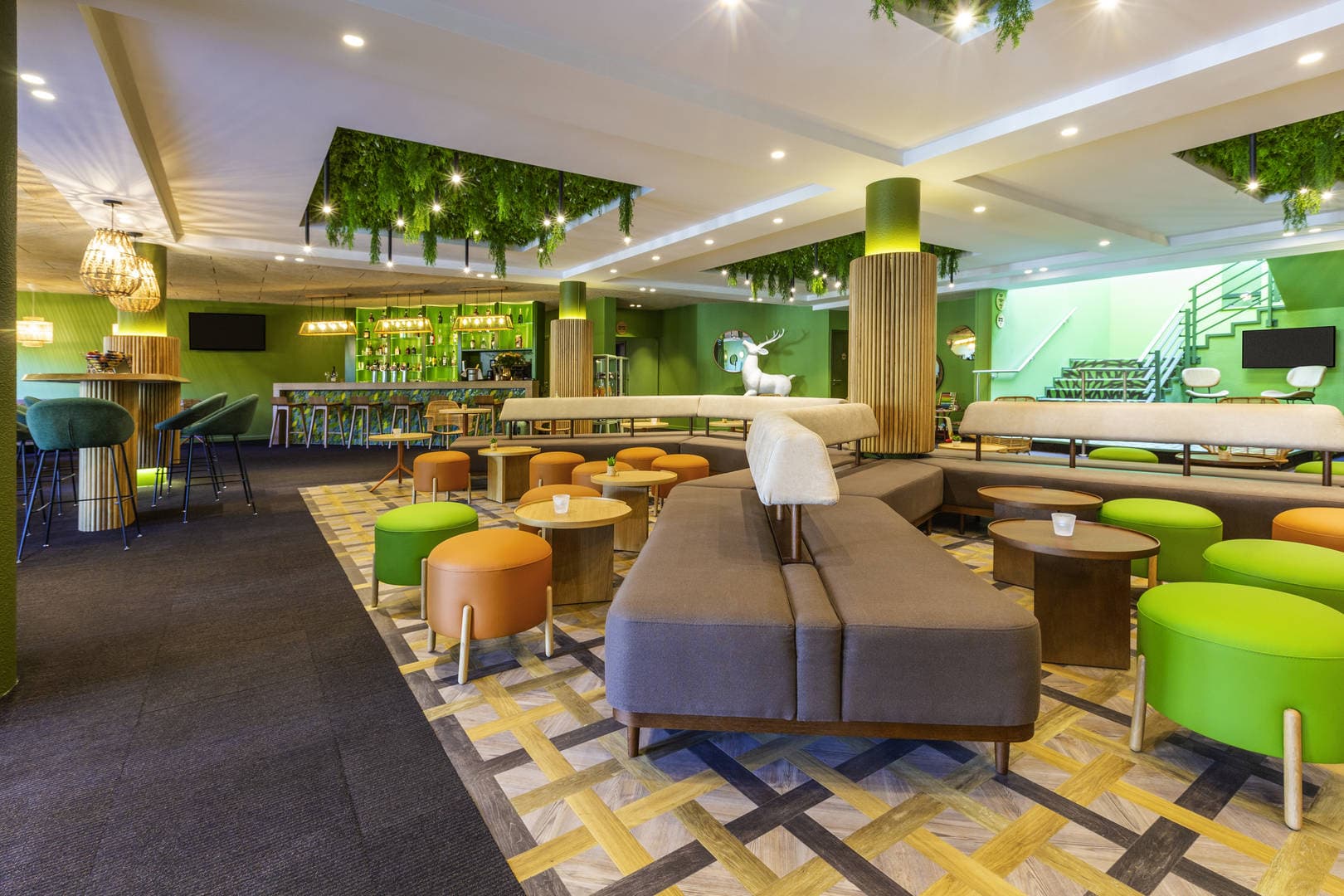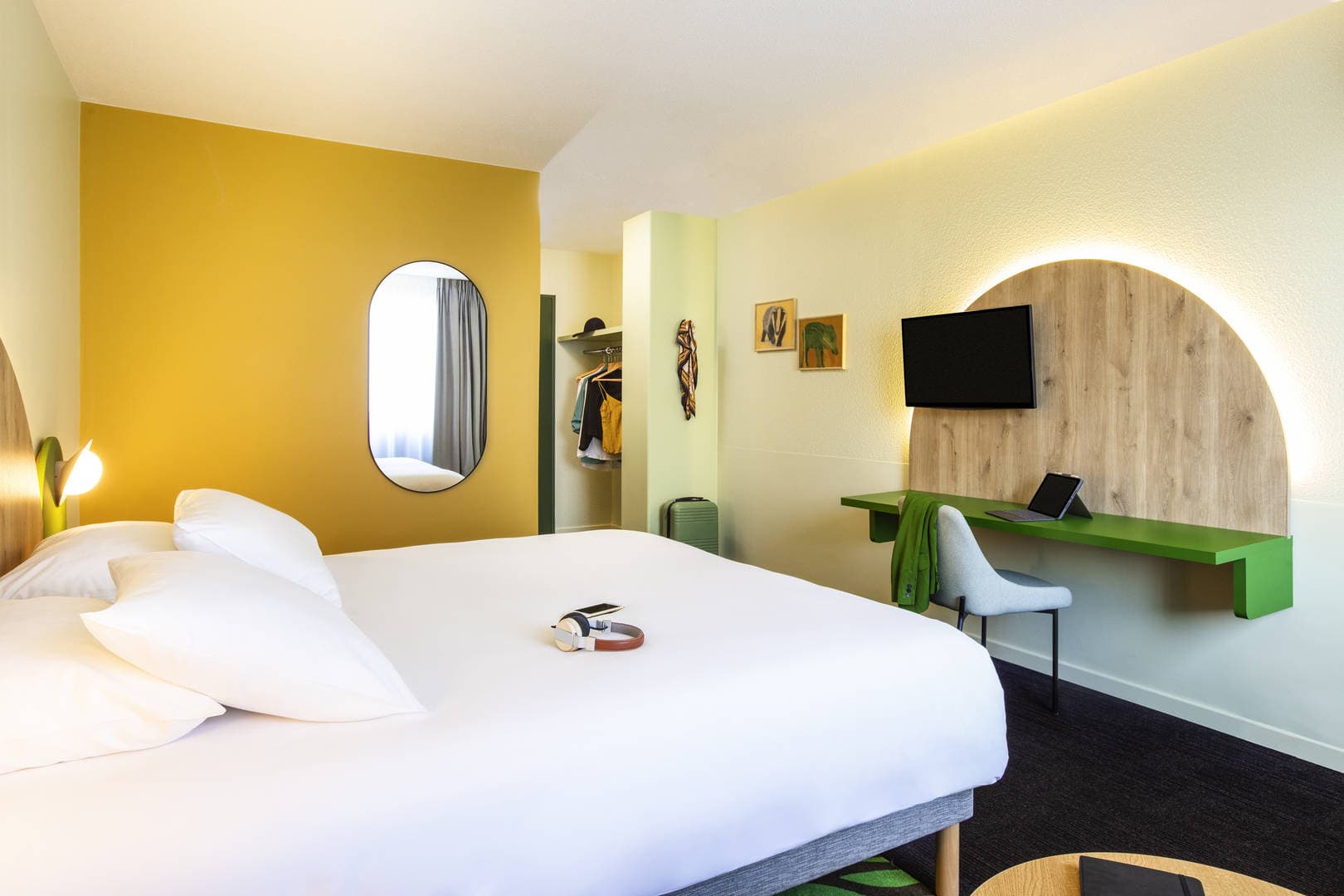Hotel ibis Styles Arlon: from member of a large group to autonomous small structure
Sectors
Hospitality
Solution
Staffing & recruitement
Workforce Management
Company type
1 - 250 employees
Reading time
5 minutes
Changes of ownership have brought their share of challenges to Hotel ibis Styles Arlon, particularly in terms of HR. Today, the focus is on stability, even in working hours. The result: highly committed staff, relatively low staff turnover and loyal customers.

Hotel ibis Styles Arlon has had an eventful history. Created under the name Arlux in 1991 by a group of Arlux investors, it then did business under the Best Western brand before filing for bankruptcy in 1996. Taken over by the AC Restaurants & Hotels Group, which was itself taken over shortly afterwards by Autogrill, the hotel was sold in 2019 to the young French Atalante Group, which made it an ibis Styles hotel (Accor Group).
The one steady factor throughout these changes has been the team of around 20 people who run the hotel day-to-day, with its 79 rooms, six seminar or banquet rooms, bar, restaurant and gym. Current director Nicolas Delattre has been on the journey almost from the very beginning: taken on as a waiter in 1992, he worked his way up, taking over management of the hotel in 2002.
Despite the uncertainties associated with successive takeovers and Covid, employees have an average length of service of 14 years. And customers have proven just as loyal. "Apart from Covid, on average, the hotel's occupancy is 76% over the year", says Nicolas Delattre, who is very proud of having kept and grown his customer base throughout these turbulent times.
Finding stability in instability
Nicolas Delattre believes his biggest HR challenge was when the giant Autogrill sold the hotel to the small Atalante Group in 2019. "We gained decision-making autonomy. But we lost all the support services, particularly in HR terms."
"At the time, my biggest challenge was having to behave as a self-employed person. Registering with all agencies, considering all the right contracts so the company would run smoothly. At the same time, everyone needed reassurance. Having to act as the leader of a company I didn't know, so that neither staff nor customers were impacted by the sale."
The small company naturally turned to the payroll service provider used by the previous group: SD Worx. "What people are looking at first of all when there's a change like this are their hours and their payslips. Staying with SD Worx was the obvious solution: it meant we could keep the same payslips and records. We were also familiar with the wage management tool, which is intuitive and means work can be entered promptly. My contact at SD Worx guided us through everything else, and they quickly completed the necessary administrative tasks. Looking back, I can appreciate all the work, support, patience and listening we received. For me, SD Worx really delivers on its service promise."
Scheduling working hours
In terms of HR policy, the focus is on continuity, particularly in terms of scheduling working hours. "We're always striving for balance between the company's requirements and everyone's expectations, which isn't easy. On the one hand, striving for maximum productivity without impacting service quality is an ongoing consideration. And on the other hand, everyone should get a reliable work schedule well in advance, so they can get organised."
And, for Nicolas Delattre, this is the main reason behind the team's stability. "Work schedules are drawn up well in advance, and change very little. We never go back on holiday schedules that have been drawn up. We've also retained an agreement drawn up before the sale, which means we can enter positive hours (extra hours worked) and negative hours (hours worked less). With days off and public holidays, and leave – including one extra day per three years' length of service – staff can easily organise their family life."
Student hours and versatility

In busier periods, "the first adjustment variable is students: 30% of our hours over the year are student hours", continues the director. They lend a hand at the Bastogne Agricultural Fair and major fairs in the Grand Duchy, but also when snow or sun attract families and sports lovers in their thousands to the Ardennes forests.
The hotel doors are also open to interns: "We have six interns at the moment, a few more than usual, because with Covid, many young people are desperate to find an internship. They get trained on the job, whilst providing valuable support to cope with peak periods. And of course, they need to be guided or coached. But they often bring a great deal of energy and a fresh perspective. They often come back to work for us as students throughout their studies. And they're the ones who get the new permanent contracts when these come up."
"I'm always looking for solutions to avoid calling someone in at the last minute. In a crisis, the preferred solution for avoiding disrupting work schedules is versatility. We're clear about this right from the moment of hiring. We encourage those who want to try something else. For my part, I also help do the bedrooms from time to time, do the washing up when it's all go, or work on reception if someone's unwell."
Employee engagement
Closures due to Covid in 2020 halved the hotel’s annual turnover. "Thanks to the information received from SD Worx, I've been able to take all the necessary steps in time: requests for assistance, declarations about the inability to work from home, etc. However, there's a great deal of uncertainty. For a company like ours, that has just completed a refurb costing €1.7 million and that plans to build a second 70-room hotel under the ibis Budget label, the short term in terms of finances is a challenge." However, Covid didn't make us look into changing our team's engagement: "There was a huge amount of support and receptiveness, particularly when the hotel reopened after the closures. I'd like to point this out and thank them."
